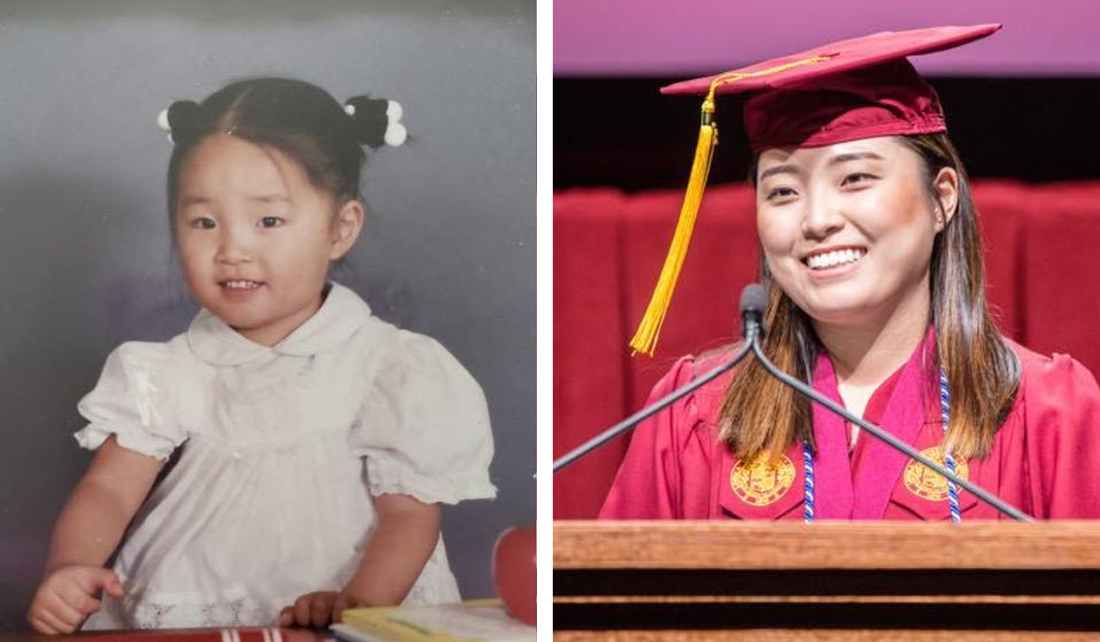
Last year, Lisa Kim was selected as a John A. Knauss Fellow, an opportunity for a unique educational experience for students interested in national policy decisions affecting ocean, coastal and Great Lakes resources. Representing Illinois-Indiana Sea Grant, this Loyola University Chicago graduate student was matched with a host in the Washington, D.C. area for a one-year paid fellowship. Here she reflects on her experiences.
#AsianPacificAmericanHeritageMonth
“Ha…neul?” my teacher called out hesitantly, unable to pronounce my name. It was the first day of school, and I shrunk away in my seat, feeling guilty that my own name seemed to be causing an inconvenience to my teacher and embarrassed by the curious looks I was getting from my classmates.
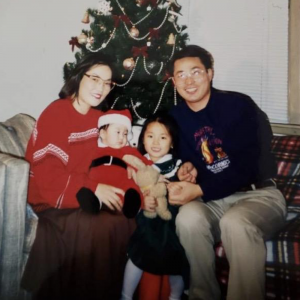
This was my brother’s first Christmas and our first photo as a family together in America. My parents wanted to take a nice portrait in front of our first tree to send to our relatives in Korea.
It was the first time I felt uncomfortable with my Korean identity. My parents had proudly given me the name Haneul, which means “sky” in Korean, and they hoped that it would inspire me to have big dreams without limitations. They held onto this hope themselves as we moved to the U.S. when I was just over a year old.
The discomfort I felt with my name continued into the early years of my education—that is, until the day my mom came home from the store with my new English name “Lisa” written on a framed piece of paper. My mom hoped that this new name would make me feel more American, but I still could not escape the difficult and unique challenges that I faced in the years to come.
I, like many others from minority groups, have struggled with feeling like I belonged to a society and culture that looked different from the one I experienced at home. Too often I experienced unkind remarks and phrases. I also felt the biases and pressures that come with being forced to fit the mold of a ‘model minority,’ a perception based on stereotypes of certain minority groups (typically of East and South Asian descent) that are seen as more STEM- or musically inclined. For many years, I have grappled with feeling like a stranger in places I identified as home—too Korean for my American community, and too American for my Korean one.
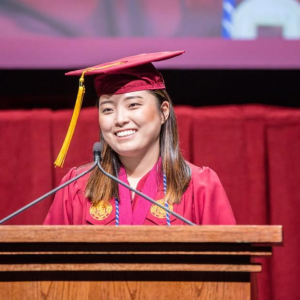
At Loyola University Chicago’s College of Arts & Sciences and Institute of Environmental Sustainability commencement ceremony in May 2016, I had the honor of giving the commencement speech to my peers. A great way to end my undergraduate years! (Photo by Natalie Battaglia)
As I entered my college years, I decided to try to do what my parents have always told me to do: embrace my Korean culture. Learning from educators with different perspectives and backgrounds, my world opened up, and so did I. I grew to appreciate the importance of having thoughtful and supportive mentors who understood my story as well as allies who wanted to understand. It was through these connections, along with the strong support of my family, that I felt more empowered to live up to my Korean name and pursue my dreams without limitations.
In 2016, I became a graduate student in Dr. Tim Hoellein’s aquatic ecology lab at Loyola University Chicago. By that summer, I found myself in waders, knee-deep in urban streams to study the effects of plastic pollution on important ecological processes. Concerned community members often asked me questions such as, “What is our government doing about plastic pollution?” Compelled by these questions focused on the relationship between our environment and politics, I started to look beyond academia and into the world of policy. With the support of Illinois-Indiana Sea Grant, I was accepted into the John A. Knauss Marine Policy Fellowship in 2018. I knew my year would be filled with marine policy work in Washington, D.C., but I didn’t anticipate that I would also build lasting relationships with international collaborators while managing ocean projects in the very country I was born in.
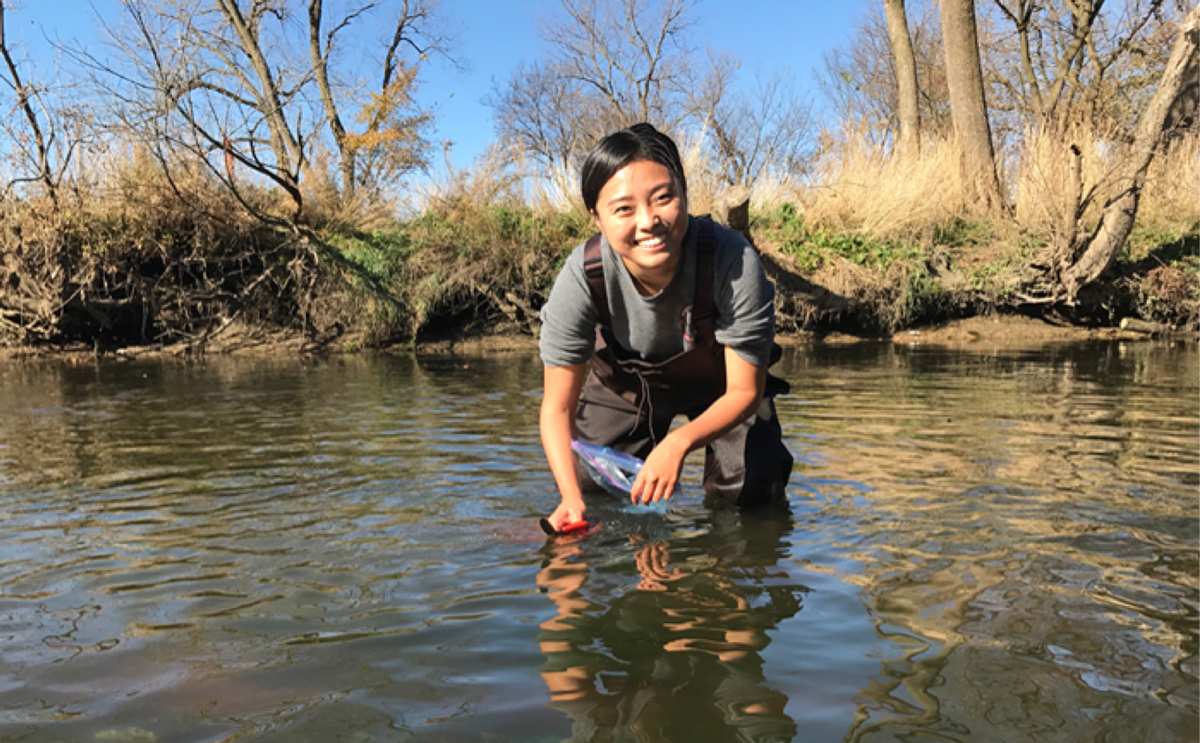
This was one of my first days out in waders at a study site in Chicago, Illinois. (Photo by Dr. Tim Hoellein)
For the fellowship, I was placed at the NOAA National Ocean Service Headquarters, Policy and Constituent Affairs Division in 2019. Shortly into my year, I began to manage the Joint Project Agreement, which is a partnership between NOAA and Korea’s Ministry of Oceans and Fisheries that oversees 25 ocean projects. In this role, I facilitated conversations and helped build relationships between Korean government officials and NOAA, and ensured that projects under the agreement were carried out smoothly. You can read more about my experiences in a post I wrote on the Knauss blog.
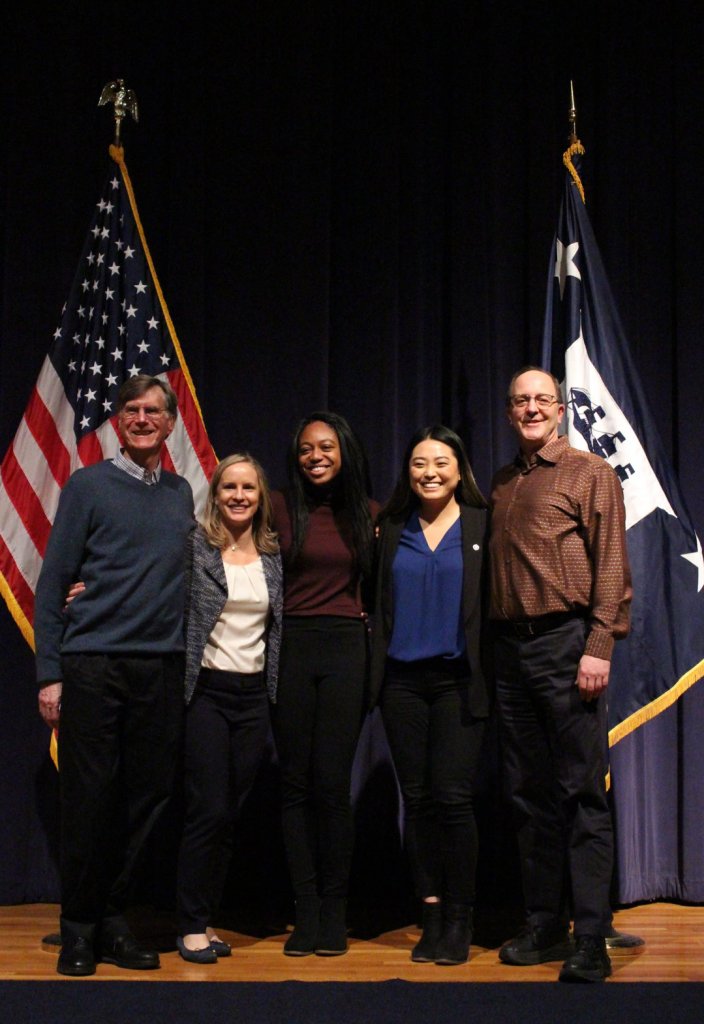
Knauss Fellowship class of 2019 graduation day. My host office, Policy and Constituent Affairs Division, came out to celebrate the end of my fellowship. Pictured left to right: Rick Schwabacher, Nicole Fernandes, Lauren Talbert, Lisa Kim, and Glenn Boledovich.
My Korean language skills were valued in new ways that helped my office and a federal agency to maintain positive international collaboration. I remember the day I told my parents that I would be going to South Korea to meet with our collaborators as well as spend some time with family members I hadn’t seen in over 20 years. My mom, who worked over 12-hour shifts of manual labor to support our family in the United States, replied, “It was all worth it.”
To this day, I am the only or one of few minority women in the room. While it can be hard to find my voice in this space, I have come to find great comfort and empowerment through my newly formed relationships at NOAA and from the many leaders that I have worked with, all of whom strongly believe in equipping the next generation of diverse leaders to continue the work of protecting our waters.
After my fellowship ended, I began supporting the NOAA Office of Education as an Education Strategic Planning Specialist. My primary roles for the office include youth engagement work with teens at aquariums across North America as well as congressional engagement. This position, in addition to my Knauss fellowship, has given me a platform to pave the path forward for other minority students, empower them and amplify their stories, and encourage them to dream without limitations—just like my parents encouraged me to do.
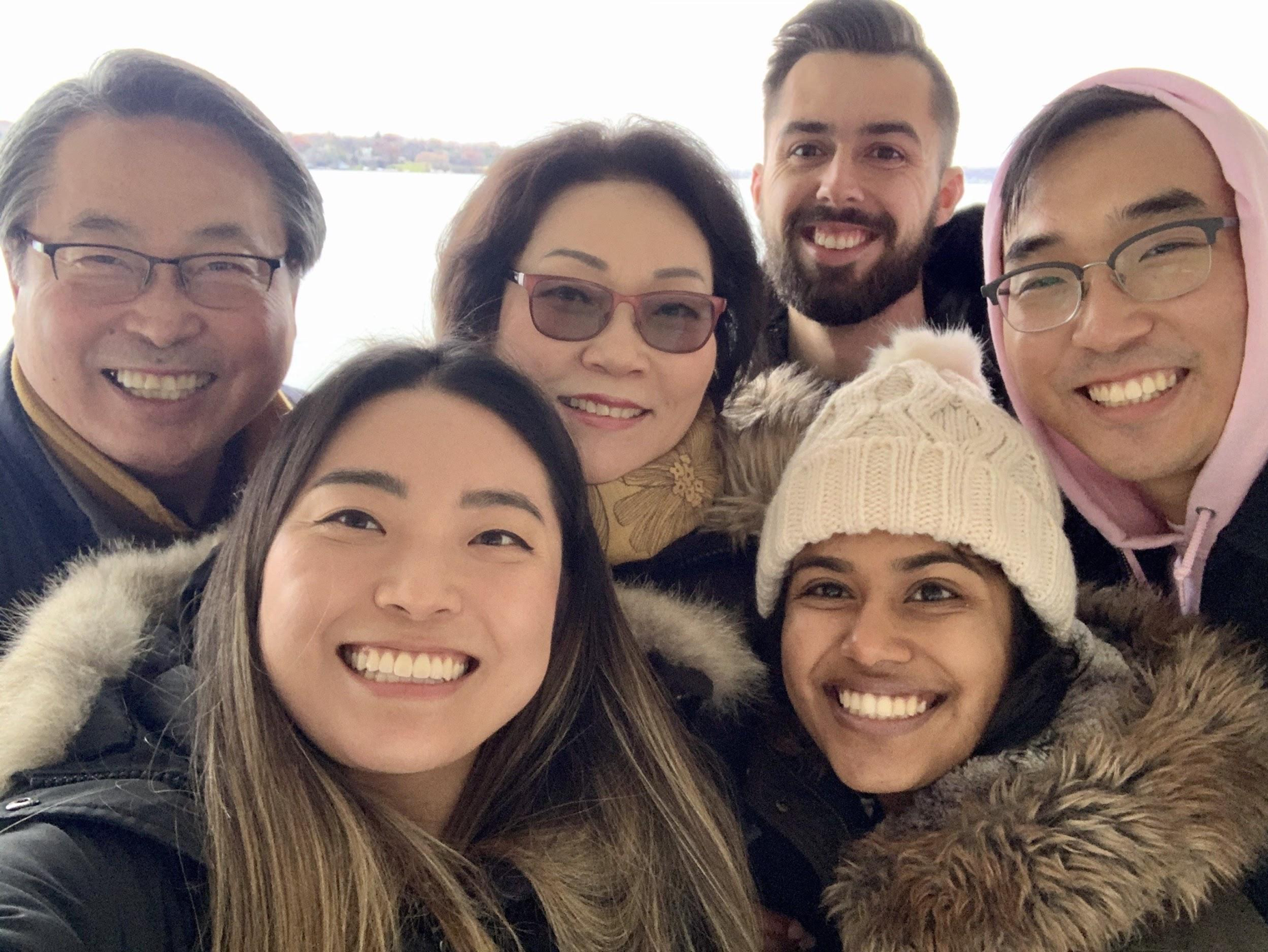
Thankful for my roots. A full family photo taken on Thanksgiving day in 2019. Pictured left to right: Joseph Kim (dad), Young Kim (mom), Mike Kidd (partner), Sarita Saju-Kim (sister-in-law), and David Kim (brother).
Illinois-Indiana Sea Grant is a part of University of Illinois Extension and Purdue Extension.
Writer: Lisa Kim, NOAA Office of Education, former Knauss Fellow sponsored by Illinois-Indiana Sea Grant

